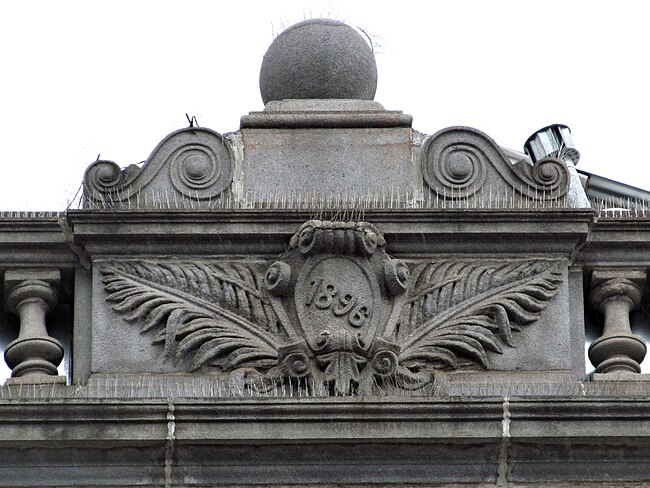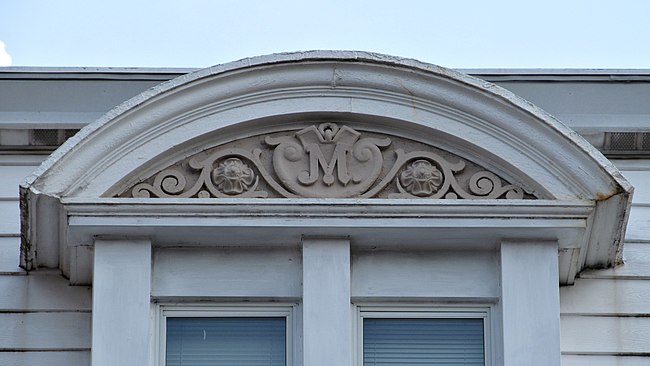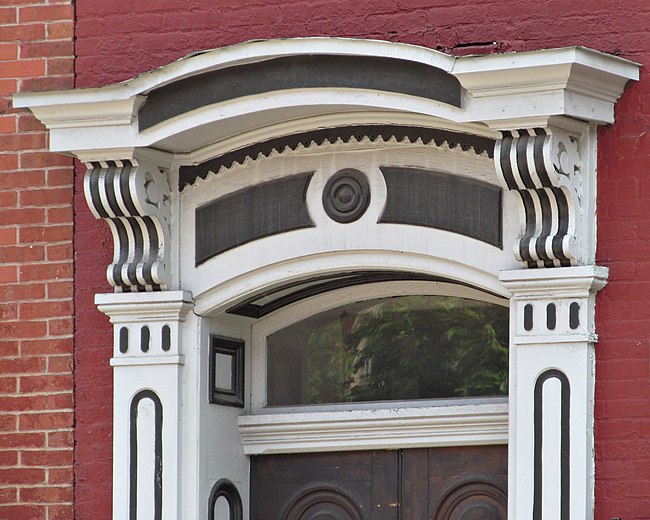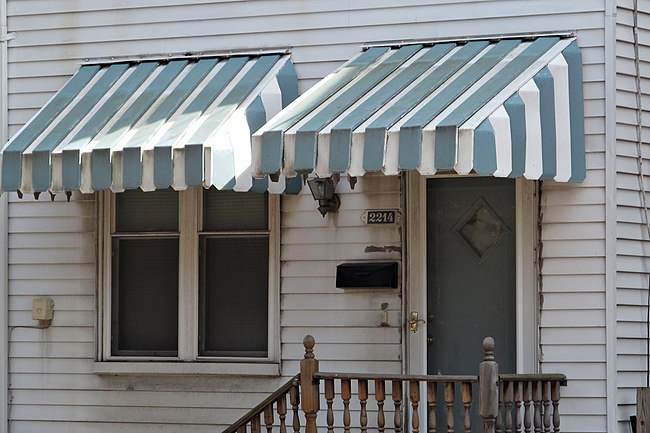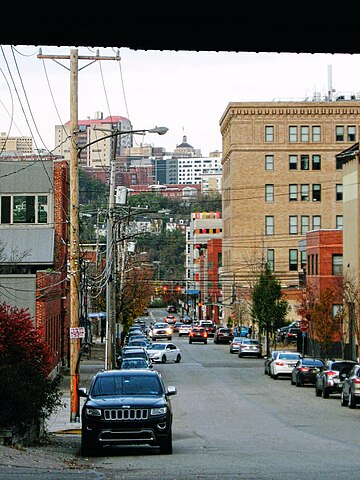
Many fine rowhouses like this one adorn the South Side, but once in a while we find one where the owners who restored the house have looked up its history and encapsulated it on a plaque. This is one of them, so we know that the house was built in 1891 for Charlotte and Wilhelm Geauf, and that the building cost $3,000 on a lot that cost $2,000. Note the fine parlor window—always the best opportunity for showing off in a rowhouse like this—and the richly textured brick cornice.





